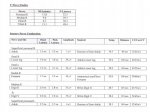BeachBum
Member
- Joined
- Apr 30, 2018
- Messages
- 20
- Reason
- Other
- Diagnosis
- 00/0000
- Country
- US
- State
- NJ
- City
- By the beach
Gait Abnormality.. Is this Foot Drop?
I will keep this as short as possible out of respect for those reading.
I have had fasciculations in right hand starting in December, went away for a while, then came back in January and moved to left hand, arch of right foot. Twitching spread everywhere, but today is mostly in right foot and calves, with buzzing and rumbling twitches here and there. I've also had pins and needles, cold sensations and other sensory symptoms (I am aware these are not typical ALS symptoms). I went to a neuro who gave me a clean clinical and an EMG on my left hand. It came out normal.
I went back to the neurologist because I have started having difficulty walking. She did not note weakness in foot and my reflexes were normal, so she gave me a clean clinical but offered to do an EMG for my peace of mind.
My right foot is flattening (arch collapsing) and my right leg seems noticeably smaller. My right foot is now bonier than my left and my arch has a dent in it. I have sharp pains in arch when seated. My toes spasm, especially the pinky. The pinky toe will take a few seconds to relax after I contract it. The only way I can describe my gait is that the weight feels like it's distributed to the inside of my foot and that I'm consciously trying to roll my ankle outwards when I walk. I feel like I'm pushing off my big toe, which gives me the feeling that it's dragging when I push off, although I haven't tripped or stumbled or fallen over.
I can walk on my toes and I can walk on my heels without issue. One note: I have broke this ankle and fibula 2 years ago, and now have 2 pins in it. My Achilles has been tighter and I also have less mobility turning the foot inwards since then.
My question is: Does this story sound familiar to anyone who developed drop foot? What steps should I take after a clean clinical exam? I am scheduled for an EMG test in late May, but I want to know if my story sounds like any stories of people diagnosed later down the road. If so, time is of the essence.
Thank you for reading.
I will keep this as short as possible out of respect for those reading.
I have had fasciculations in right hand starting in December, went away for a while, then came back in January and moved to left hand, arch of right foot. Twitching spread everywhere, but today is mostly in right foot and calves, with buzzing and rumbling twitches here and there. I've also had pins and needles, cold sensations and other sensory symptoms (I am aware these are not typical ALS symptoms). I went to a neuro who gave me a clean clinical and an EMG on my left hand. It came out normal.
I went back to the neurologist because I have started having difficulty walking. She did not note weakness in foot and my reflexes were normal, so she gave me a clean clinical but offered to do an EMG for my peace of mind.
My right foot is flattening (arch collapsing) and my right leg seems noticeably smaller. My right foot is now bonier than my left and my arch has a dent in it. I have sharp pains in arch when seated. My toes spasm, especially the pinky. The pinky toe will take a few seconds to relax after I contract it. The only way I can describe my gait is that the weight feels like it's distributed to the inside of my foot and that I'm consciously trying to roll my ankle outwards when I walk. I feel like I'm pushing off my big toe, which gives me the feeling that it's dragging when I push off, although I haven't tripped or stumbled or fallen over.
I can walk on my toes and I can walk on my heels without issue. One note: I have broke this ankle and fibula 2 years ago, and now have 2 pins in it. My Achilles has been tighter and I also have less mobility turning the foot inwards since then.
My question is: Does this story sound familiar to anyone who developed drop foot? What steps should I take after a clean clinical exam? I am scheduled for an EMG test in late May, but I want to know if my story sounds like any stories of people diagnosed later down the road. If so, time is of the essence.
Thank you for reading.
Last edited:




